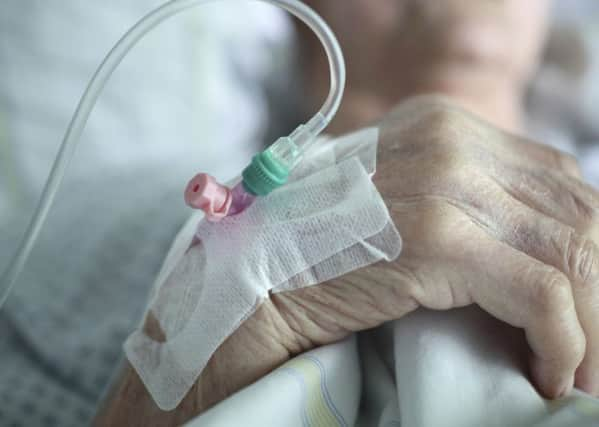One in six A&E admissions '˜may not have been necessary'


Too many patients also faced delayed discharges because community care packages were not available, the review found.
Financial pressures, shortages of staff, an ageing population and an “unsustainable” configuration of hospital services have made improvement difficult, comptroller and auditor general Kieran Donnelly said.
Advertisement
Hide AdAdvertisement
Hide AdHe added: “My report shows that emergency hospital admissions are costly and frequently avoidable.
“To compound matters, once admitted, many patients can remain in a hospital bed longer than is necessary.”
Mr Donnelly published his report on Managing Emergency Hospital Admissions today.
He said: “With hospitals struggling to cope with increasing levels of demand for emergency care, particularly among older and chronically ill patients, ensuring that patients are treated in the most appropriate setting is crucial if the resources available for emergency care are to be used to best effect.”
Advertisement
Hide AdAdvertisement
Hide AdDespite the challenges, the report found that the considerable focus on emergency care over recent years by the Department of Health had secured improvement.
There are many local initiatives to prevent avoidable emergency admissions, including risk prediction by GPs, education with self-management, hospital alternatives and telemedicine.
Health trusts have also made great efforts to improve their management of patient admissions and discharges, resulting in shorter hospital stays and falling hospital bed numbers, the review noted.
New ways of treating patients more quickly and in different settings are being developed, such as rapid assessments which can divert minor cases away from emergency departments.
Advertisement
Hide AdAdvertisement
Hide AdWhile the report acknowledged earnest efforts being made to improve emergency care across the entire health and social care sector – including GPs, the social services and acute hospitals, it pointed out that there was still room for improvement:
l Many patients are still being admitted to hospital unnecessarily when they could be treated more appropriately elsewhere in the system, thus freeing beds up for those waiting for planned inpatient care. In 2015-16 the department’s statistics show that 16% of all emergency admissions may not have been necessary.
l Too many patients admitted as emergencies still faced unnecessary delays in their discharge from hospital due to problems in securing appropriate care packages in their homes or the community. The department’s target in 2015-16 was that no patient with complex needs should remain in hospital for more than seven days after clinicians and other health professionals had deemed the patient ready for discharge.
However, in that year over 1,700 such patients continued to occupy a hospital bed.
Advertisement
Hide AdAdvertisement
Hide AdMr Donnelly said many of his messages were echoed in the recently published Bengoa report, which recommended rebalancing the system of care away from acute hospital settings towards community and primary care provision.
The auditor added: “Having set the strategic direction, therefore, it is crucial that the (Health) Department provides ongoing support to health and social care providers to ensure that more effective models of emergency care, along the lines described in my report, are implemented and that the pace of change is increased.”
Emergency admissions account for 28% of all patients admitted to hospital in Northern Ireland and cost more than £460 million in 2015-16.
The number has risen from 151,000 in 2008-09 to just over 166,000 in 2015-16, an increase of 10%, with the majority (83%) coming through the 18 hospital emergency departments located across the Province, the audit office said.
The rise in emergency admissions is also dominated by patients who stay less than two days in hospital.